The book lay still on the high-back wicker chair, like the news of murdered evangelists on federal ears, only swaying slightly in the breeze. On other days the books—especially this book—are very far places I visit and of which I become a part but today, it was only an open volume with pages the scent of daisy.
Nnaemeka was pointing at the boy who slipped and fell on the ball trying to feint around his opponent. He was laughing in a way that made me begin to laugh. He folded his face in ugly, jovial patterns. For a moment, he became a stranger and bore no resemblance to my younger brother who was only just a few months out of primary school.
“Look at him. See him.” he said.
“It’s oversabi that is worrying him. He should have just passed,” I said, speaking loud enough for everyone to hear.
“Abi o. Pass it like Messi.” Nnaemeka said, pushing his left foot forward.
“Messi na person name? Abeg when you talk passes, you talk Iniesta. You talk Alonso.”
“Messi is the world best and nobody is greater than him.” Nnaemeka said, a little too loudly.
“And Ronaldo is. . .”
“Otu!” Someone screamed from among the boys below, but he wasn’t talking about Ronaldo. He had just offered a teammate a pass, which only needed a foot to get into goal. His teammate had missed, and that teammate was the boy who’d fallen earlier.
We watched the boys play football on the street from the balcony of our three-storey high apartment, sharing hi-fives if we both cheered the same team and that team scored, and cursing when another boy shimmied with the ball when he apparently had a clear shot at goal. The goal posts were four unused rubber tyres rolled away from mechanic workshops, placed two each on both sides of the street where they played, each pair a foot apart. On some days, the cloud would turn gloomy and the boys would play in the rain, after which someone usually went home with the blame and a bitter gripe.
Today, a small puddle of brown rainwater filled with evening sunlight sat on one corner of the street. Legs dipped into it without care, and it wasn’t until my fellow JSS2 classmate, Kunle, slipped and stubbed a foot on caked mud and I began to laugh that Nnaemeka turned to me and said, “Arinze, let’s go and tell papa that we want to go down and play ball.”
I slowly stopped laughing and looked into Nnaemeka’s oval eyes widened with excitement and expectation. I couldn’t tell him no. Even though I didn’t say anything, his eyes suddenly shrunk. He looked down at the street again. “Let’s try,” he said, in a voice that made me want to hate papa.
He walked behind me, moving around the huddle of furniture in the parlor and the rows of empty buckets in the miniature passage that closed into the door of papa’s room which was always locked when mama wasn’t home.
Papa was playing Ludo inside and my knock halted the clatter of dice on glass. “Yes? Who’s it?” Papa’s guttural voice filled my ears.
“It’s Arinze, sir. Can…”
“Yes?”
I paused for a moment, suddenly nervous. “Papa, can we go down and play?”
Papa didn’t pause; he never did. “No,” he said, and resumed playing his Ludo. “Have you read your books?”
Before I could answer papa, Nnaemeka spun around and slipped back into the parlor. “Yes,” I answered papa and when he said, “It’s a lie. Will you go and read your books now!” I was already in the parlor, walking back to the balcony.
Nnaemeka had slammed the balcony door. When I pulled it open, I wanted to scold him for slamming the door. But when I saw him looking out into the street, his arms folded over the thick balustrade and his chin on his arms, I knew he wasn’t watching the boys playing. He was somewhere else, somewhere better; maybe somewhere where he could go down and play with his friends without having a list of things to be bought in hand.
I walked up beside him, looking at the boys who were either laughing or cursing or panting, and I remembered how papa would sit in his recliner sometimes when mama had gone to her shop and call us out from our room and ask us to catch his hand.
Nnaemeka and I had many times summoned enough anger and vowed to tell papa that that wasn’t our idea of playing, that catching his hand was no fun, but our fury would immediately fizzle away when we saw the wholeness of intent on his face—the insensitivity of killing such happiness in his face. He wholly believed that asking us to catch his hand kept us better company than any of “those bad children” outside, and his genuine laughter would rise over our resolve and we’d begin to smile, then laugh, too subdued by compassion to tell him that we’d rather catch an afternoon nap than catch his hand.
I looked at Nnaemeka. His gaze was fixed on someplace I sometimes still go to. Outside, sunlight still fell on the small puddle of water which was presently still and almost as stagnant as the everyday cliche that was our lives.
The book was still swaying in the breeze, but the pages still returned to the page I’d most memorized, as if motioning for me to see the irony. The passage introduced Umeh, a scatterbrained character who lacked the ability to speak and whose only companions were dry palm fronds on which he somehow wrote, and so spoke and remembered a lot of what he’d otherwise forgotten:
“Each day is a race. Tomorrow is the prize. You run to get to the finish line, but you don’t rob yourself of the thrill of actually running. Not everyone’s gonna make it. Some just won’t get there. Some days you win, some days you lose. But you can’t win everyday. “
“Maybe tomorrow papa will allow us go,” I said, looking away. I doubted that Nnaemeka heard me. I knew I could hardly hear myself.
The innermost part of me that mocked this crumbling facade of playing the big brother knew that everyday was the same for us; our tomorrow was already happening.
**********
Post image by Eric Pauwels via Flickr
About the Author:
 Iwundu is a teenage writer with a lionized laziness in beginning the first sentence, but somehow has had his works published in the Kalahari Review, TeenInk, and of course, Brittle Paper.
Iwundu is a teenage writer with a lionized laziness in beginning the first sentence, but somehow has had his works published in the Kalahari Review, TeenInk, and of course, Brittle Paper.


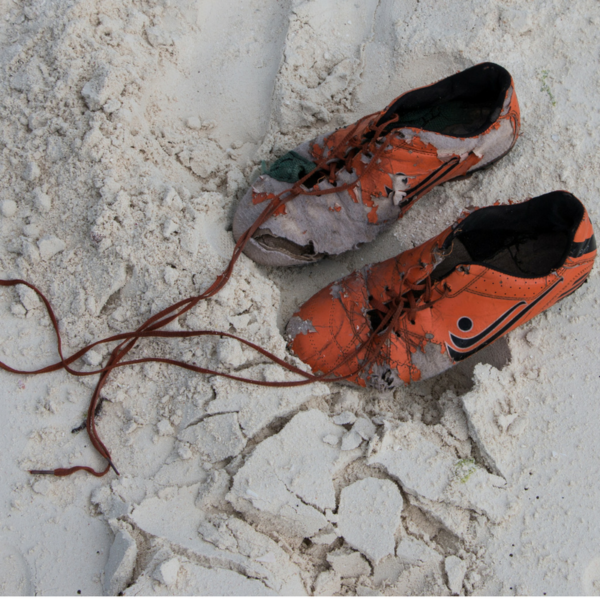
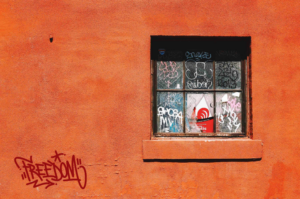

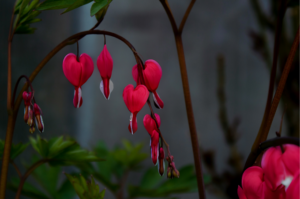
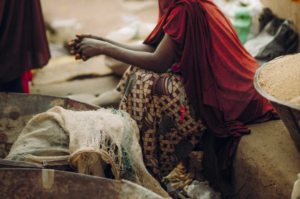
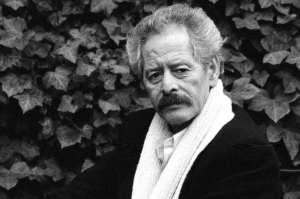
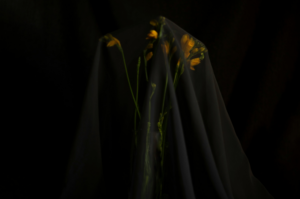

Iwundu Wisdom February 14, 2017 13:38
Thank you all. :-)